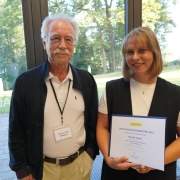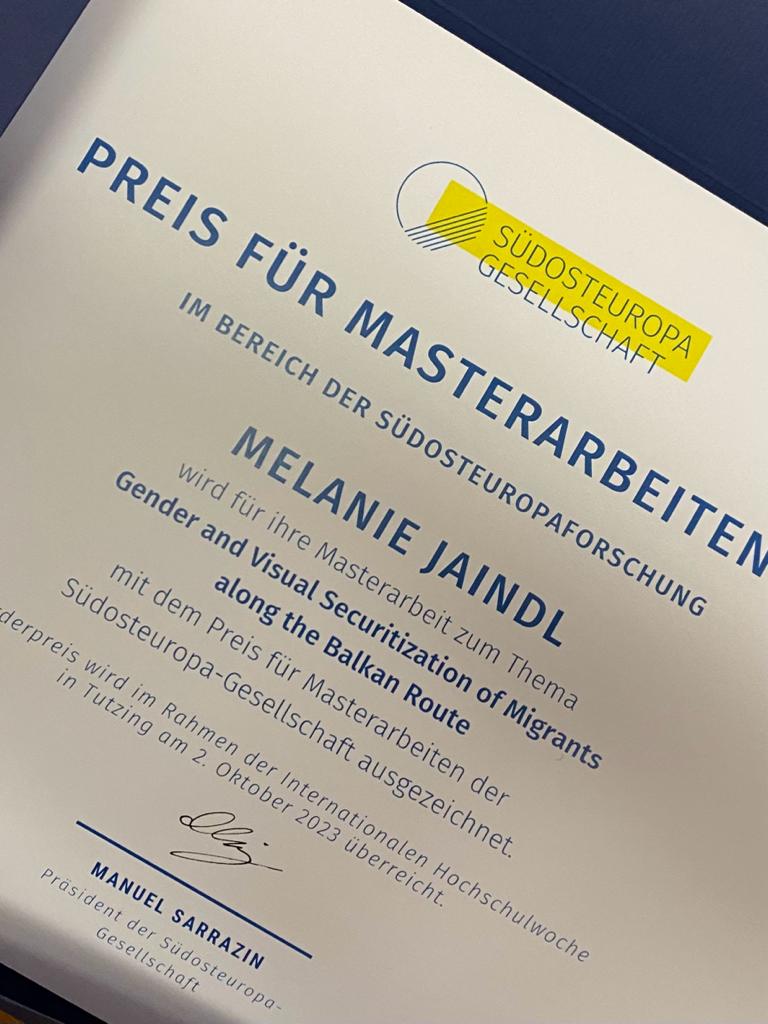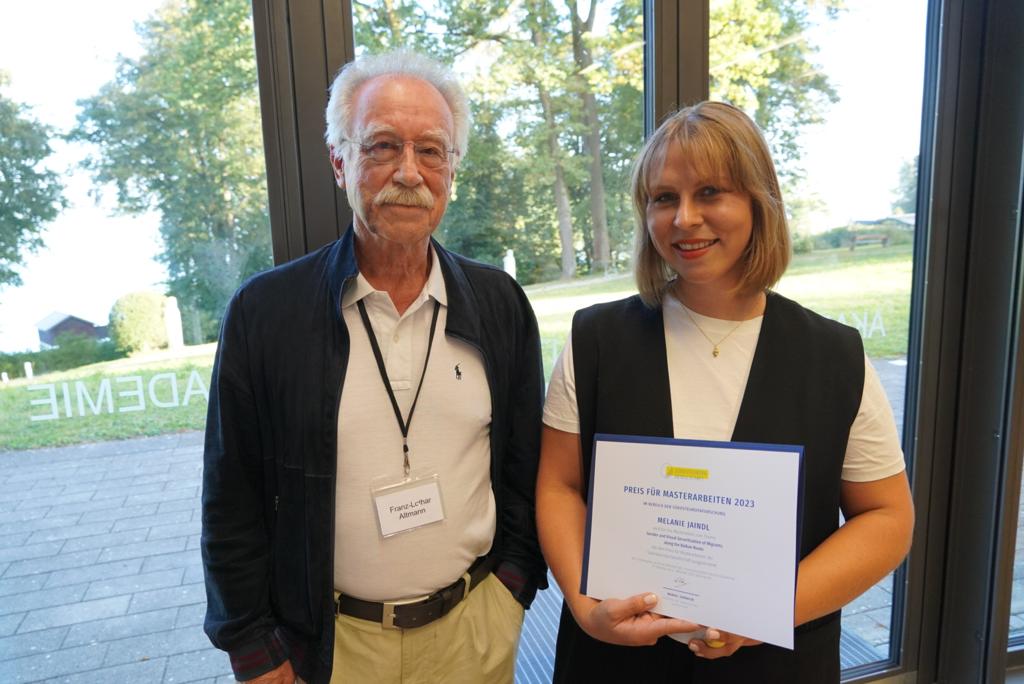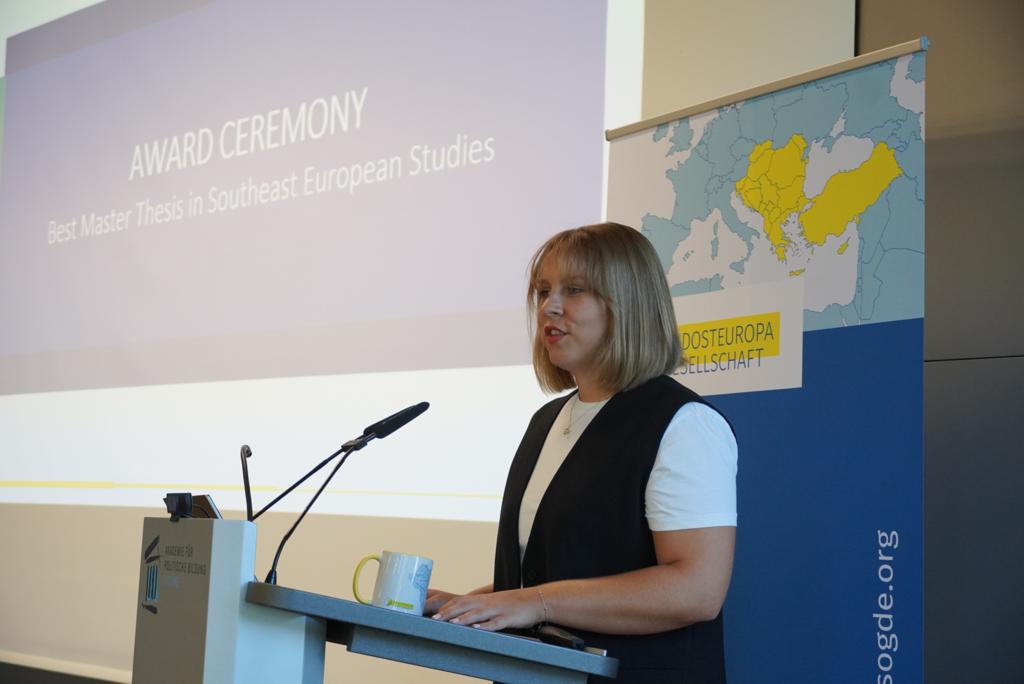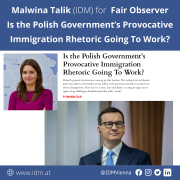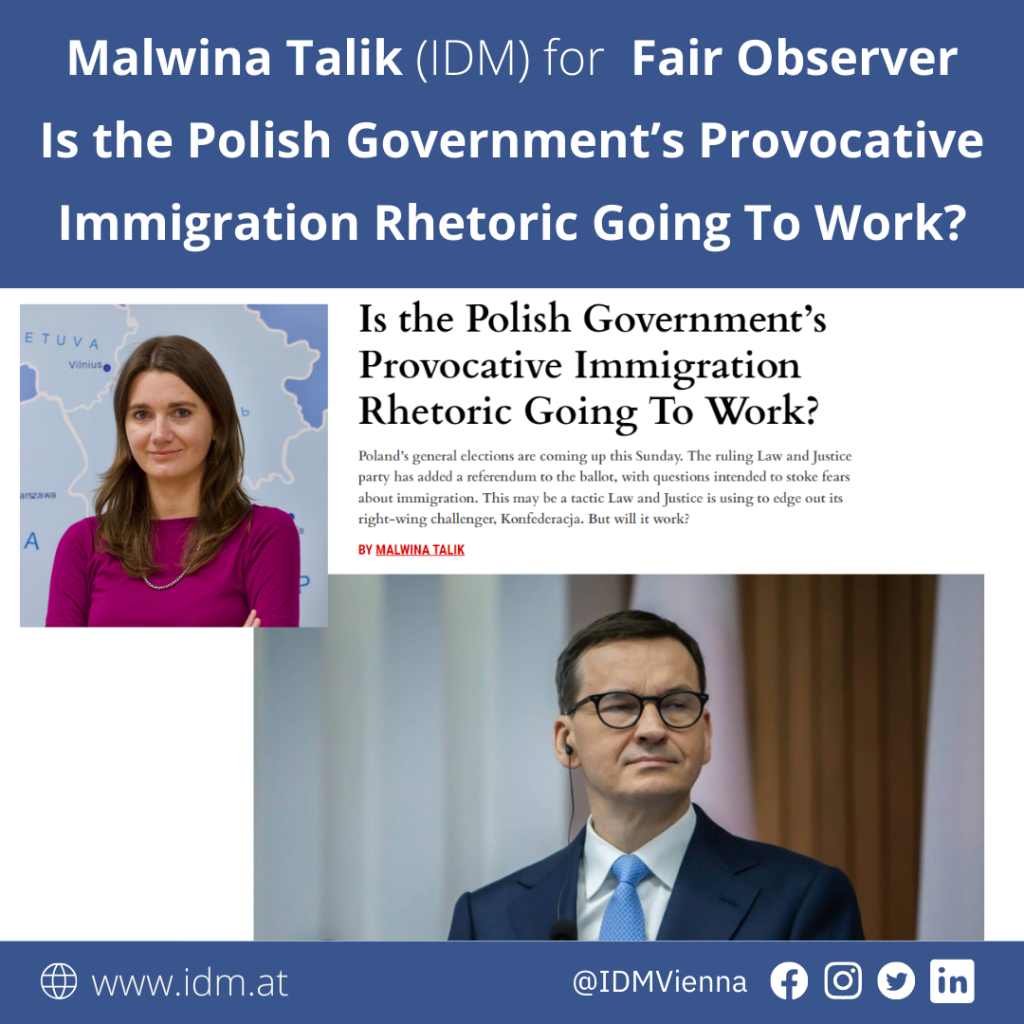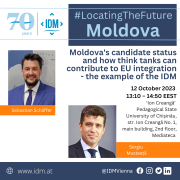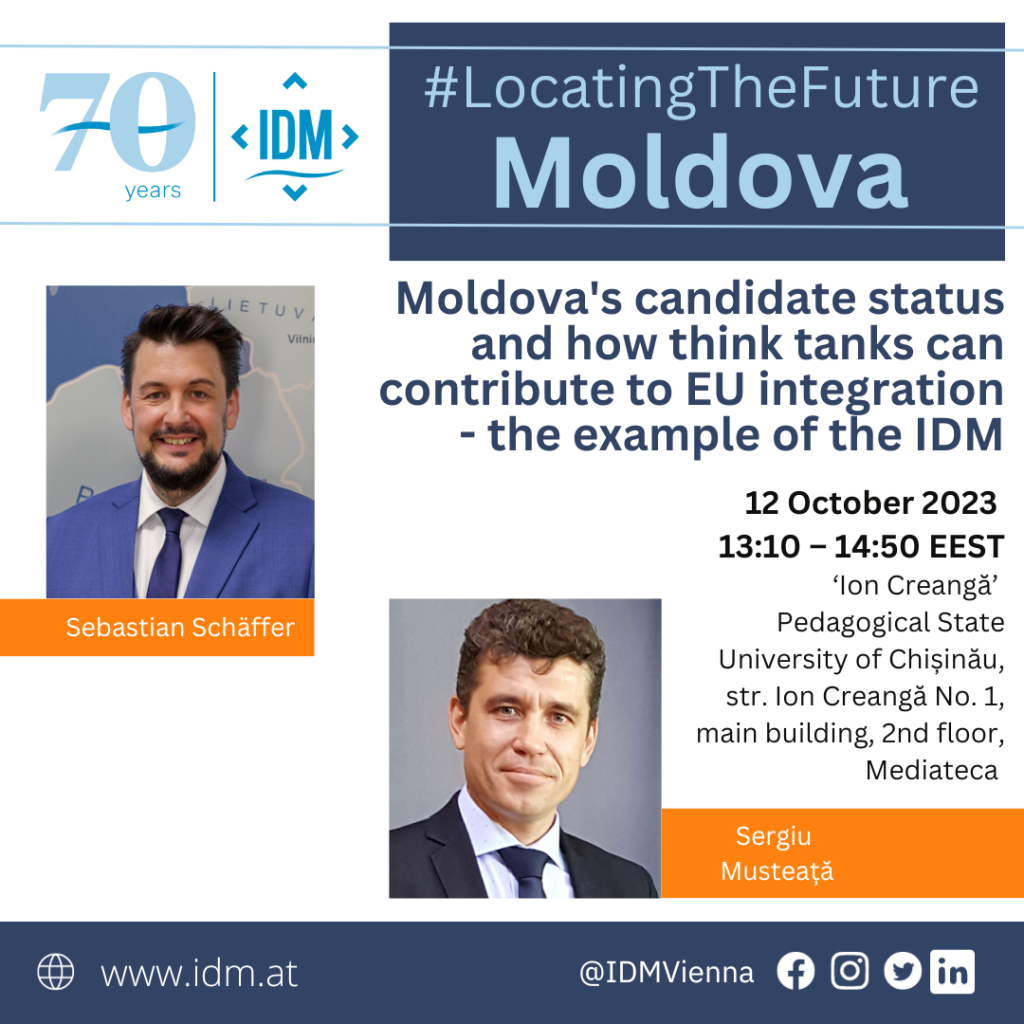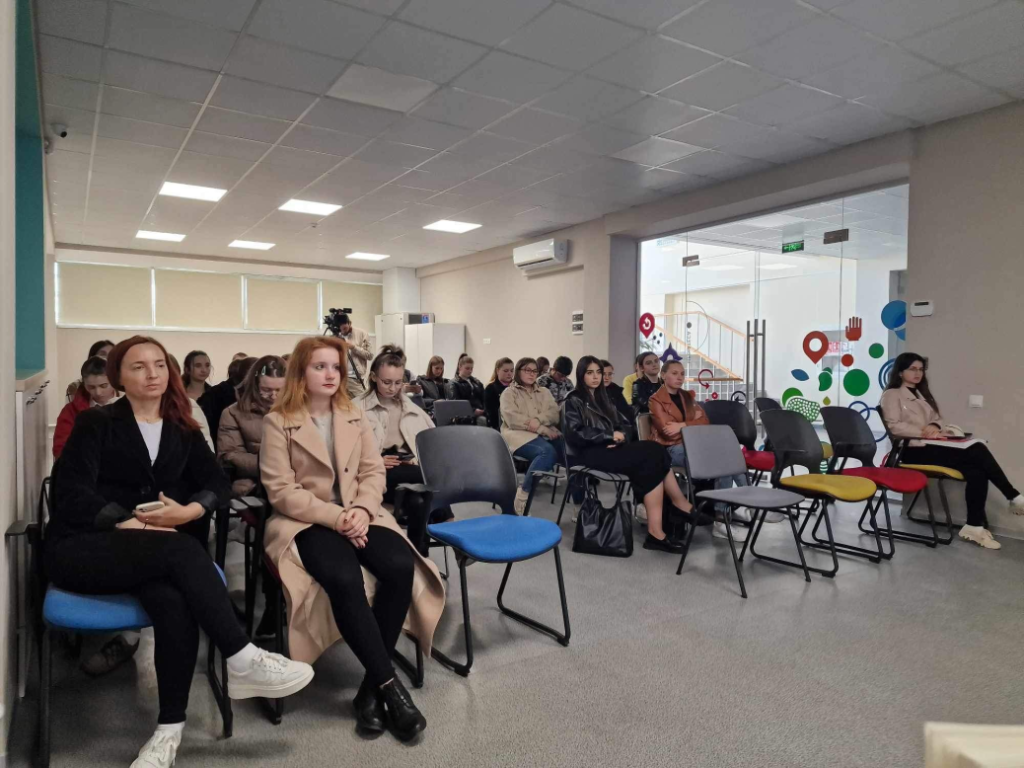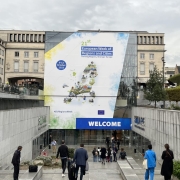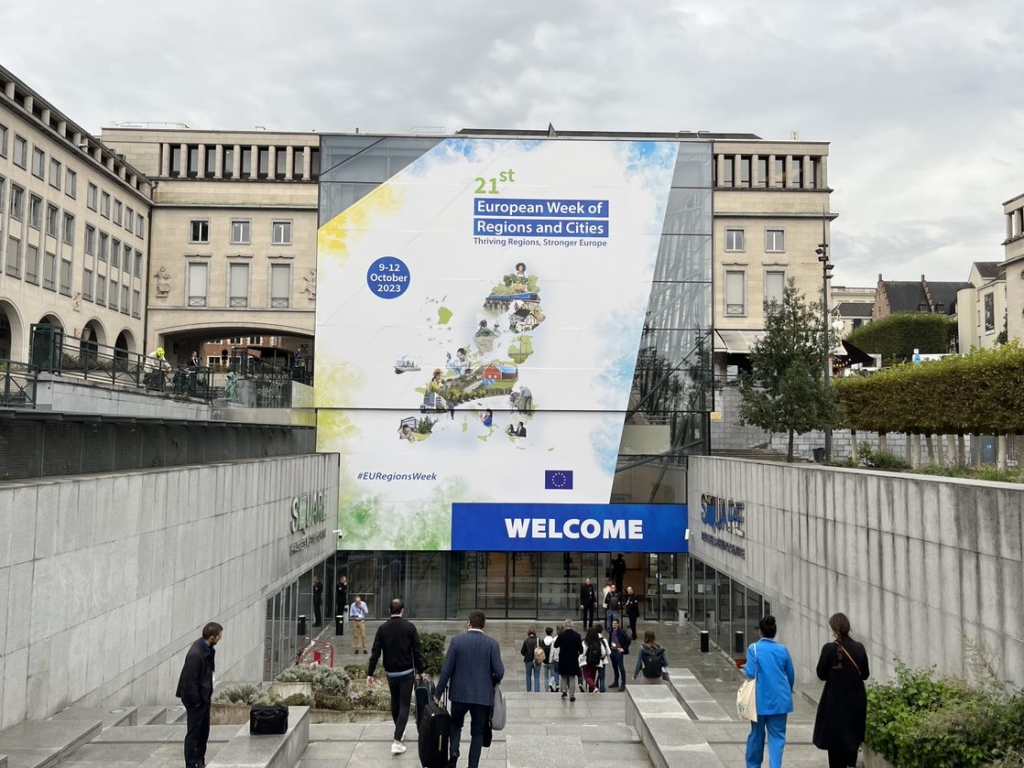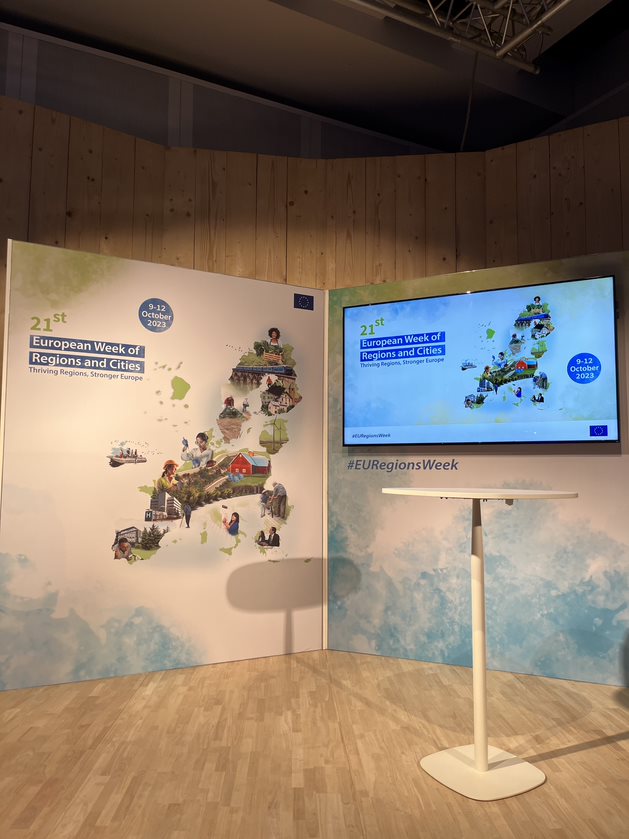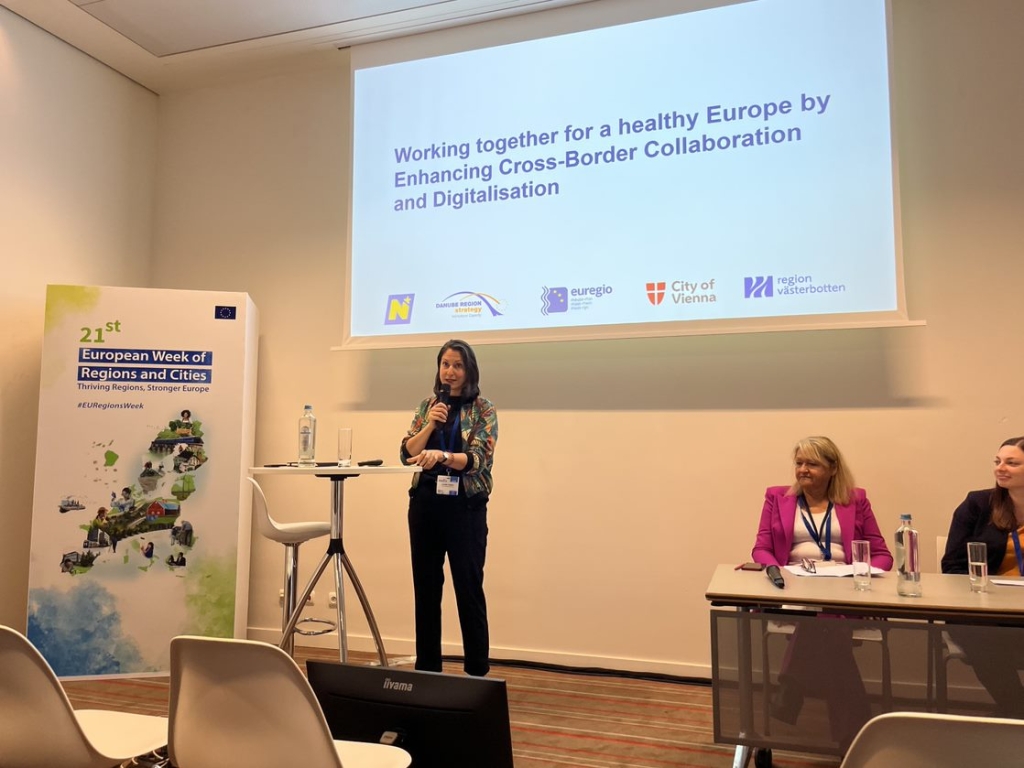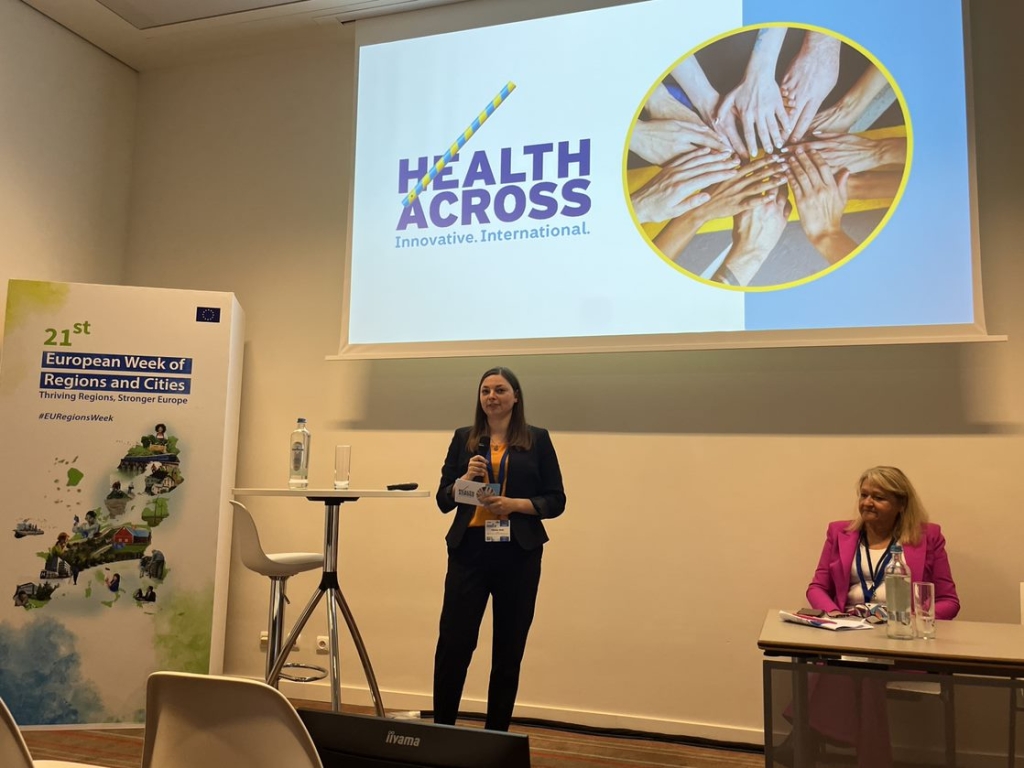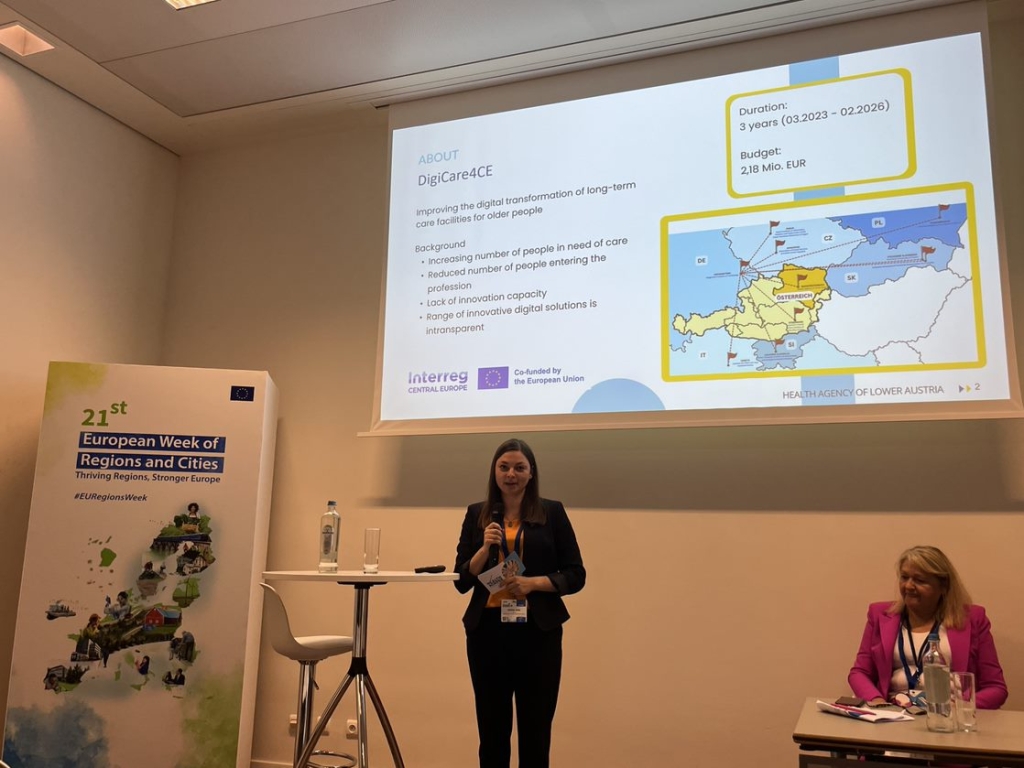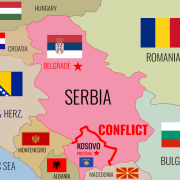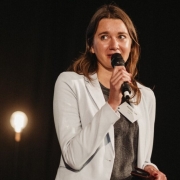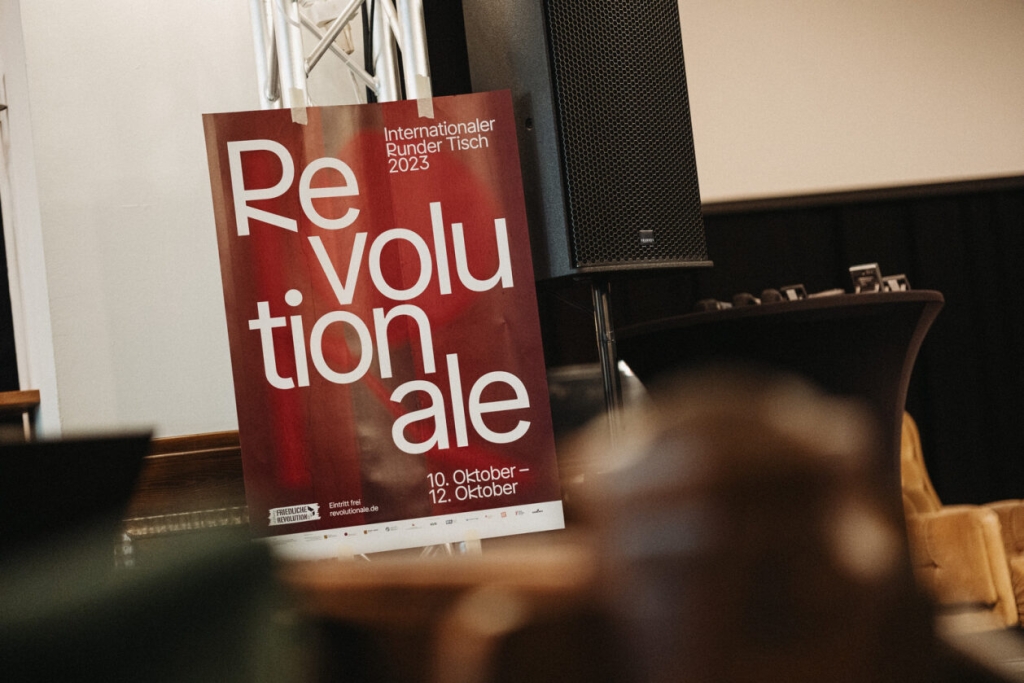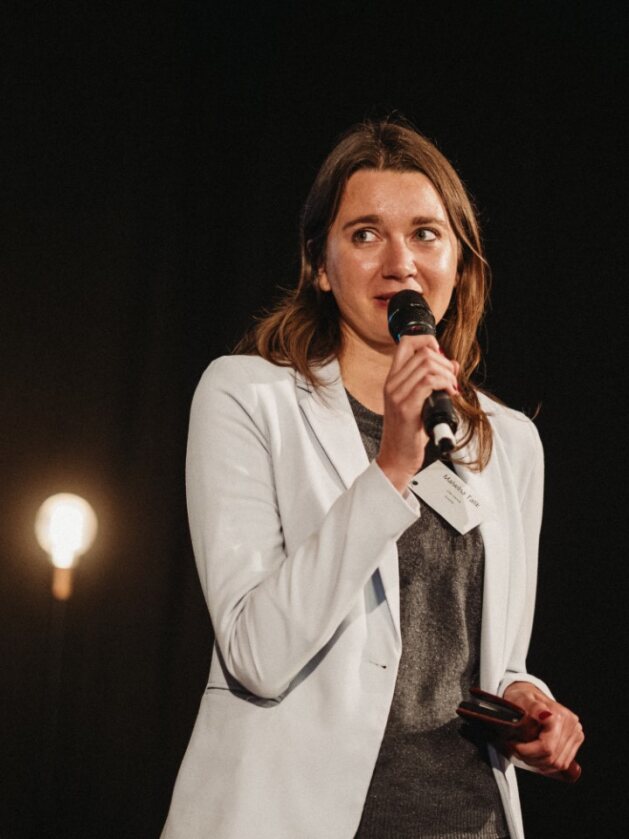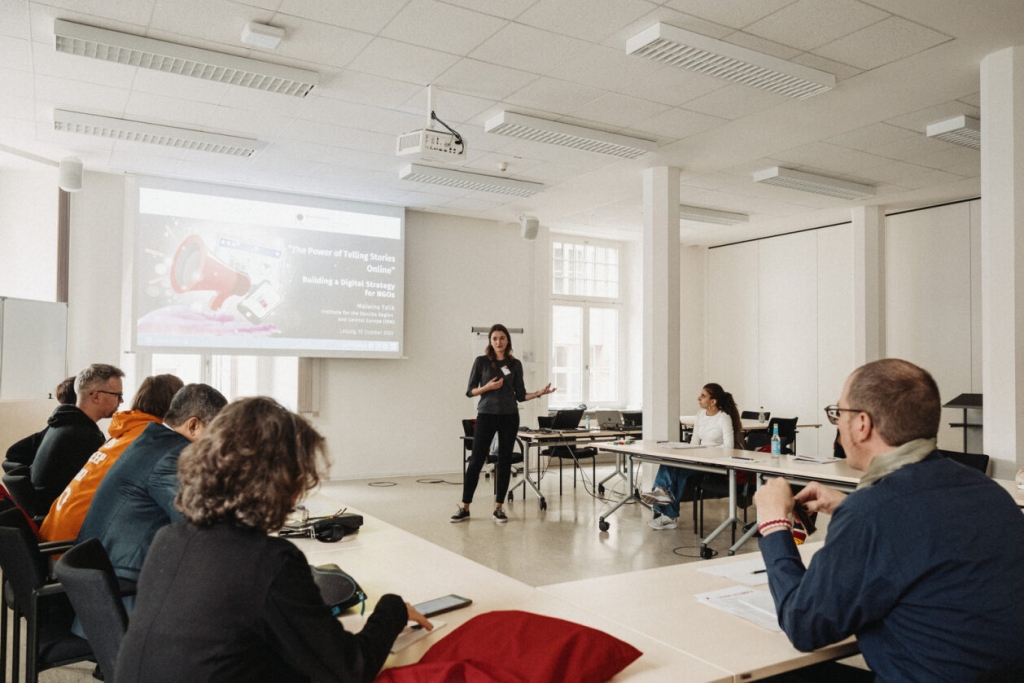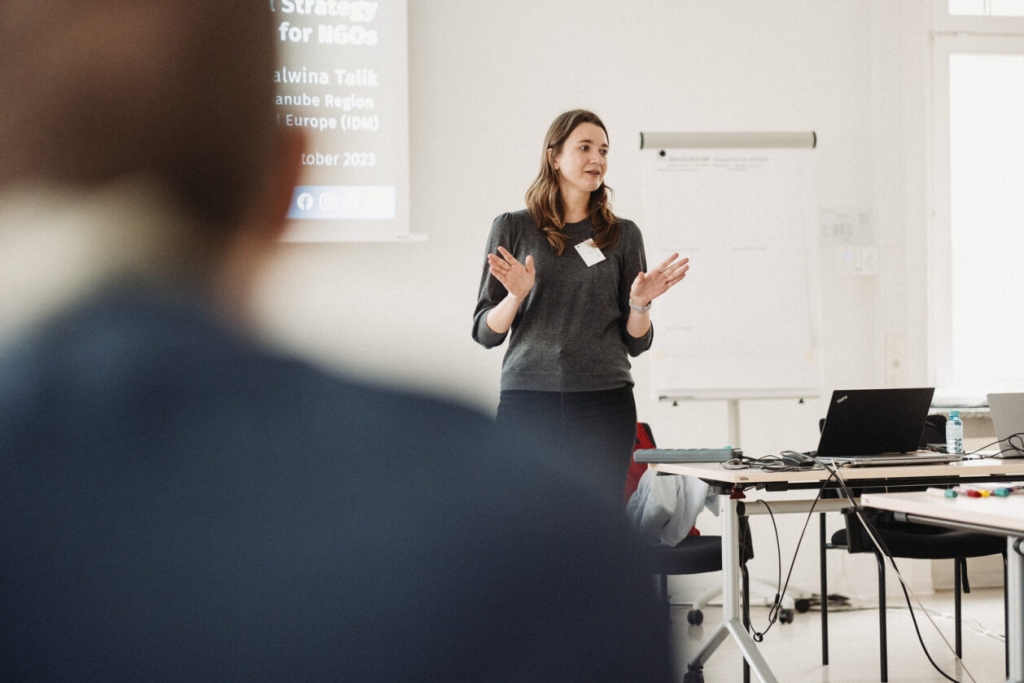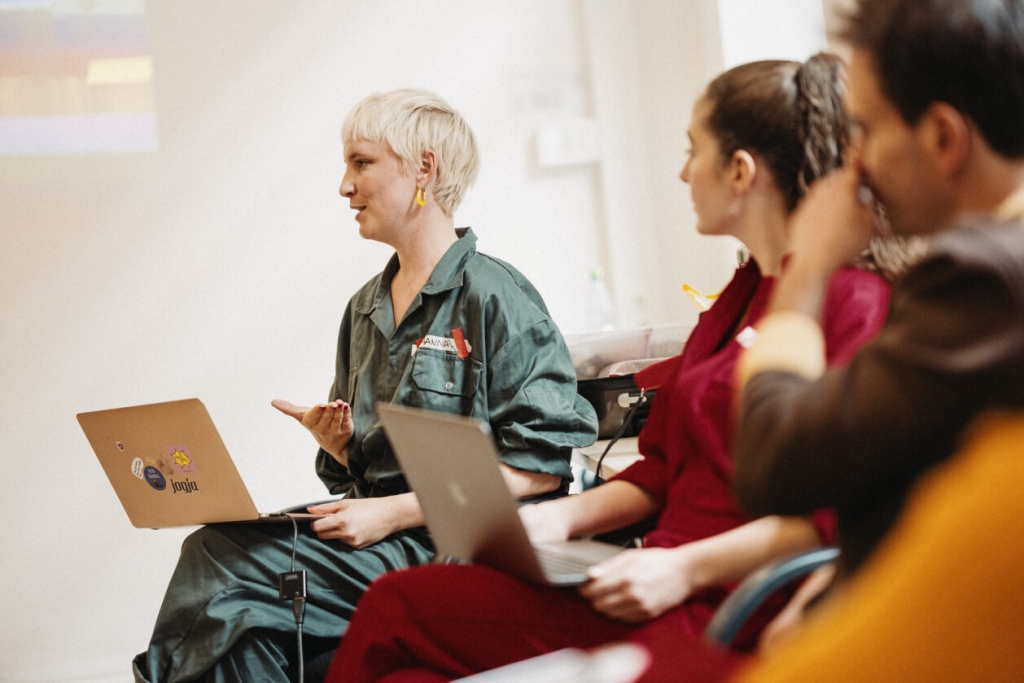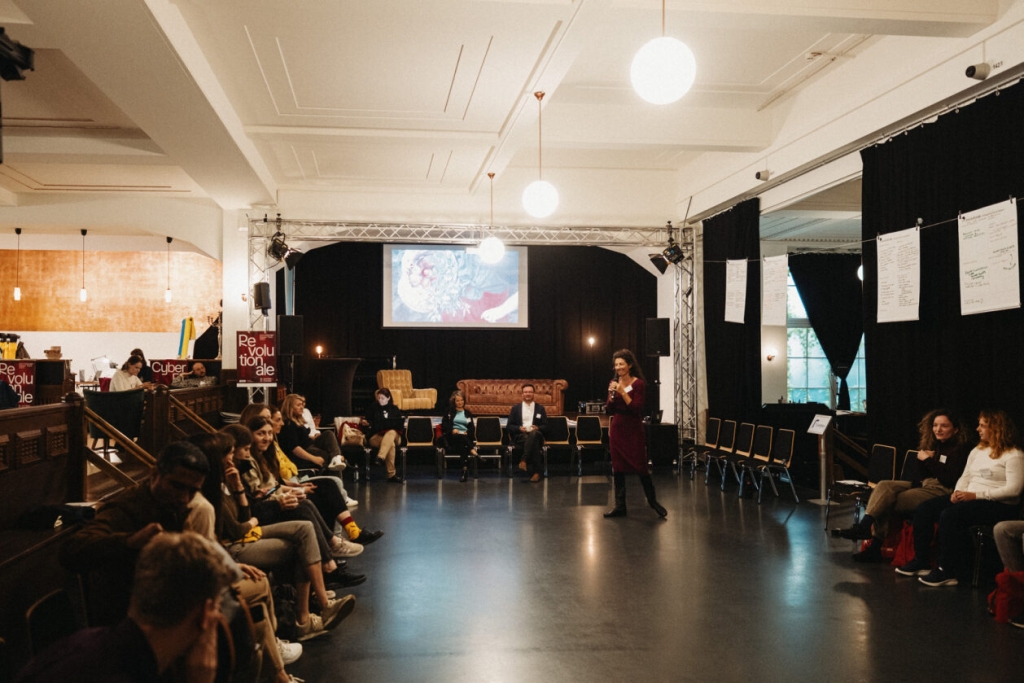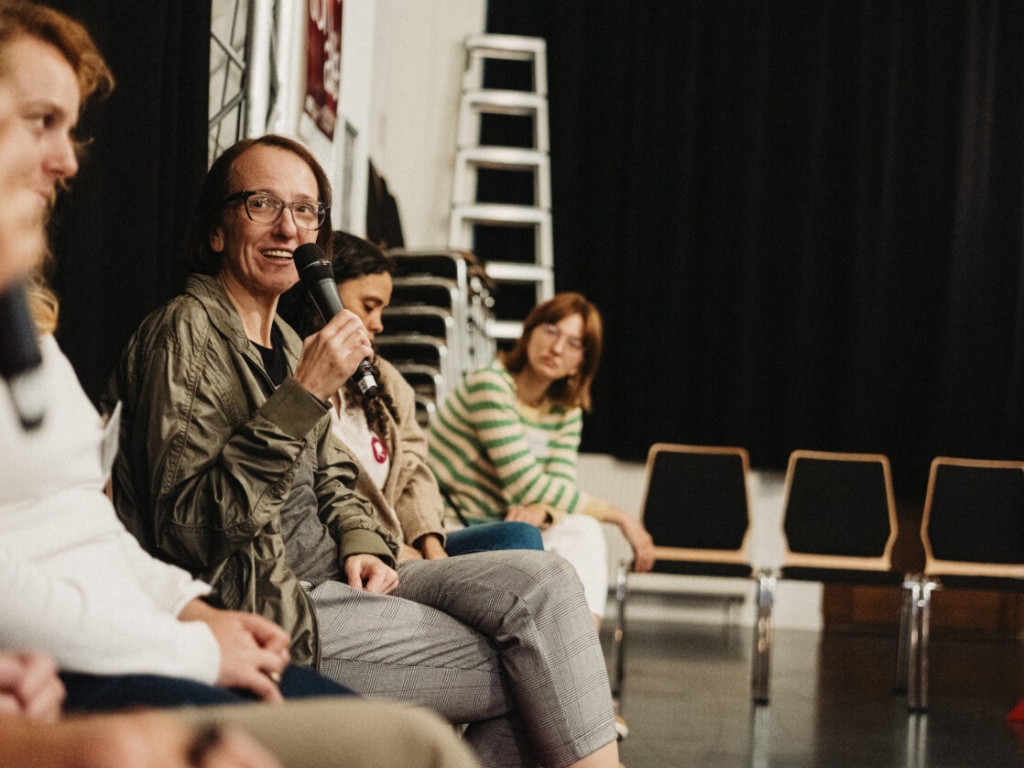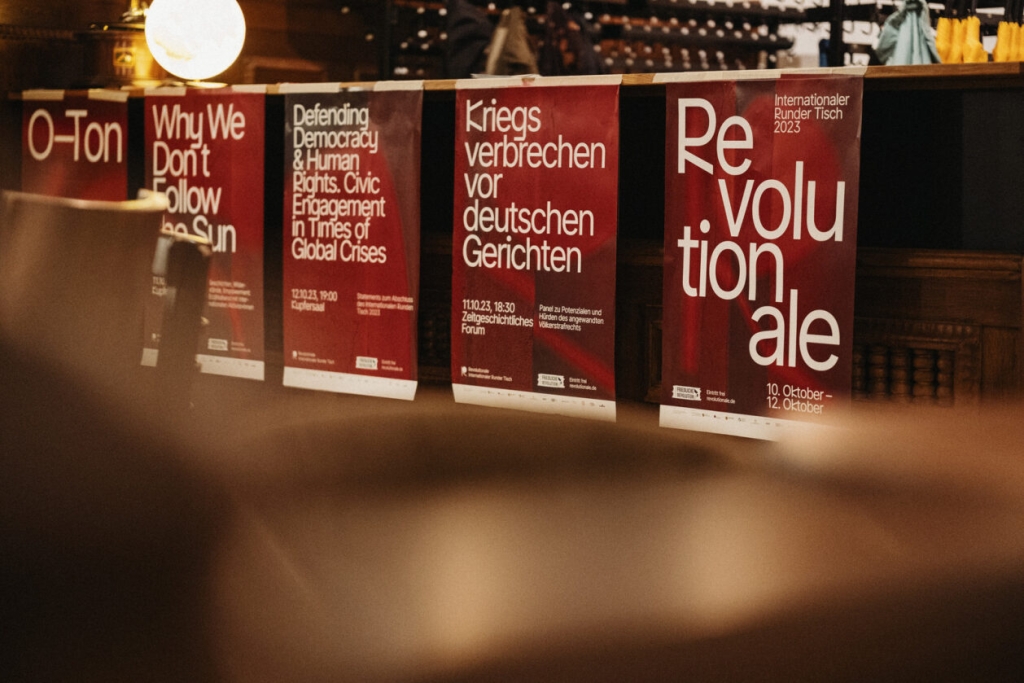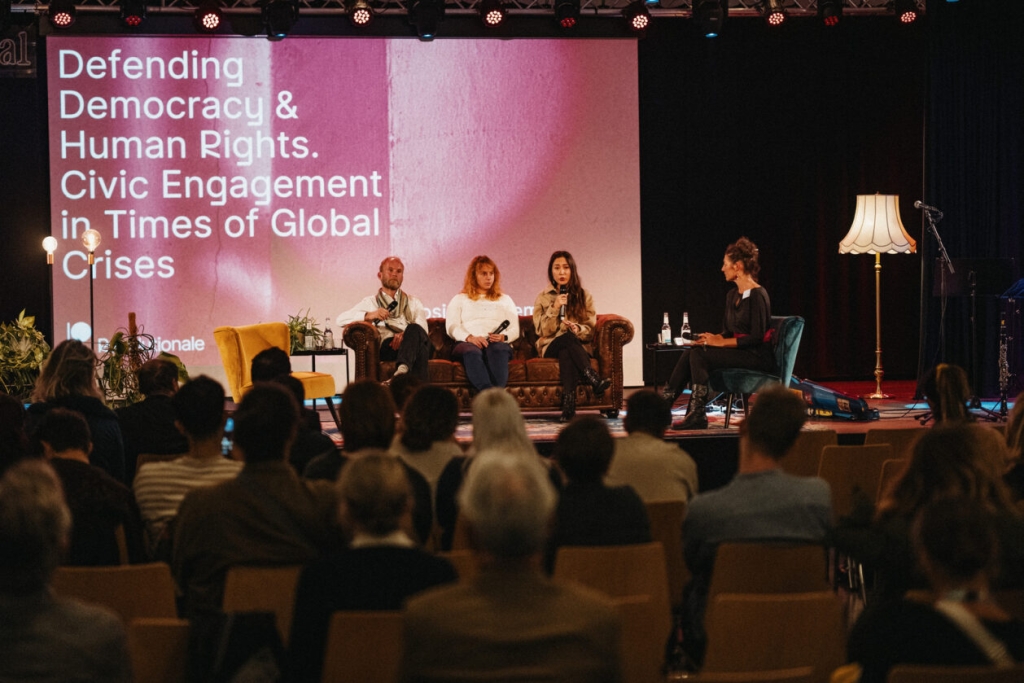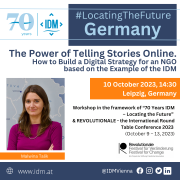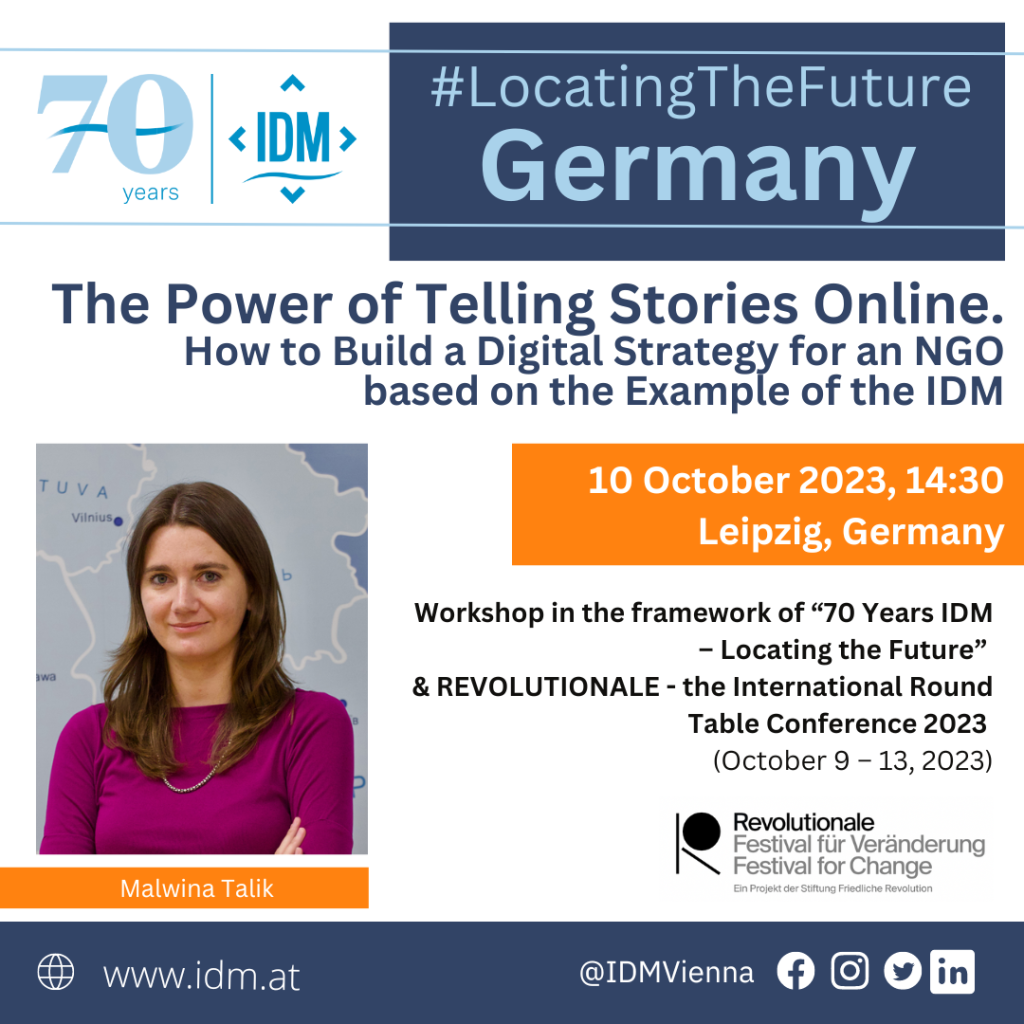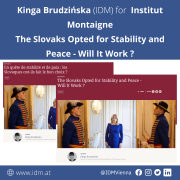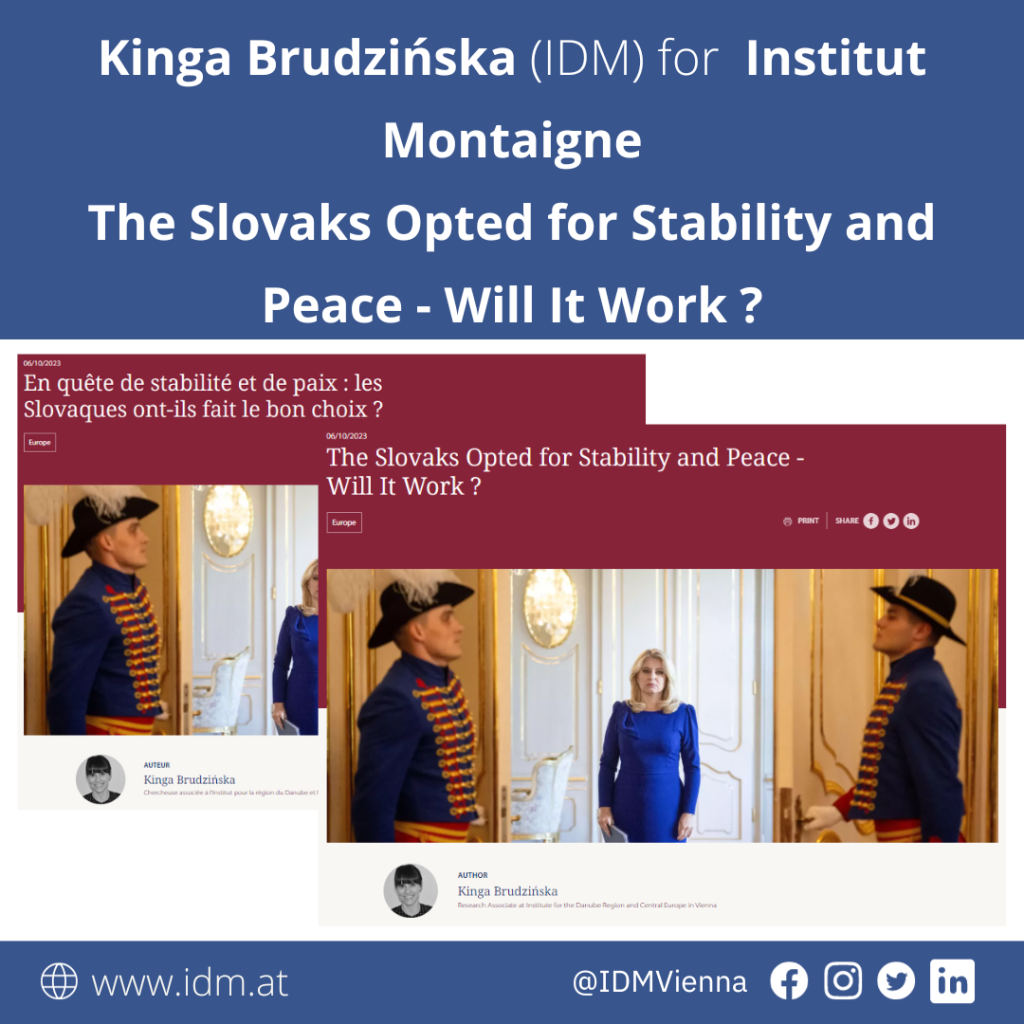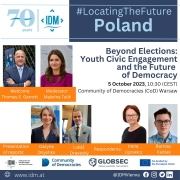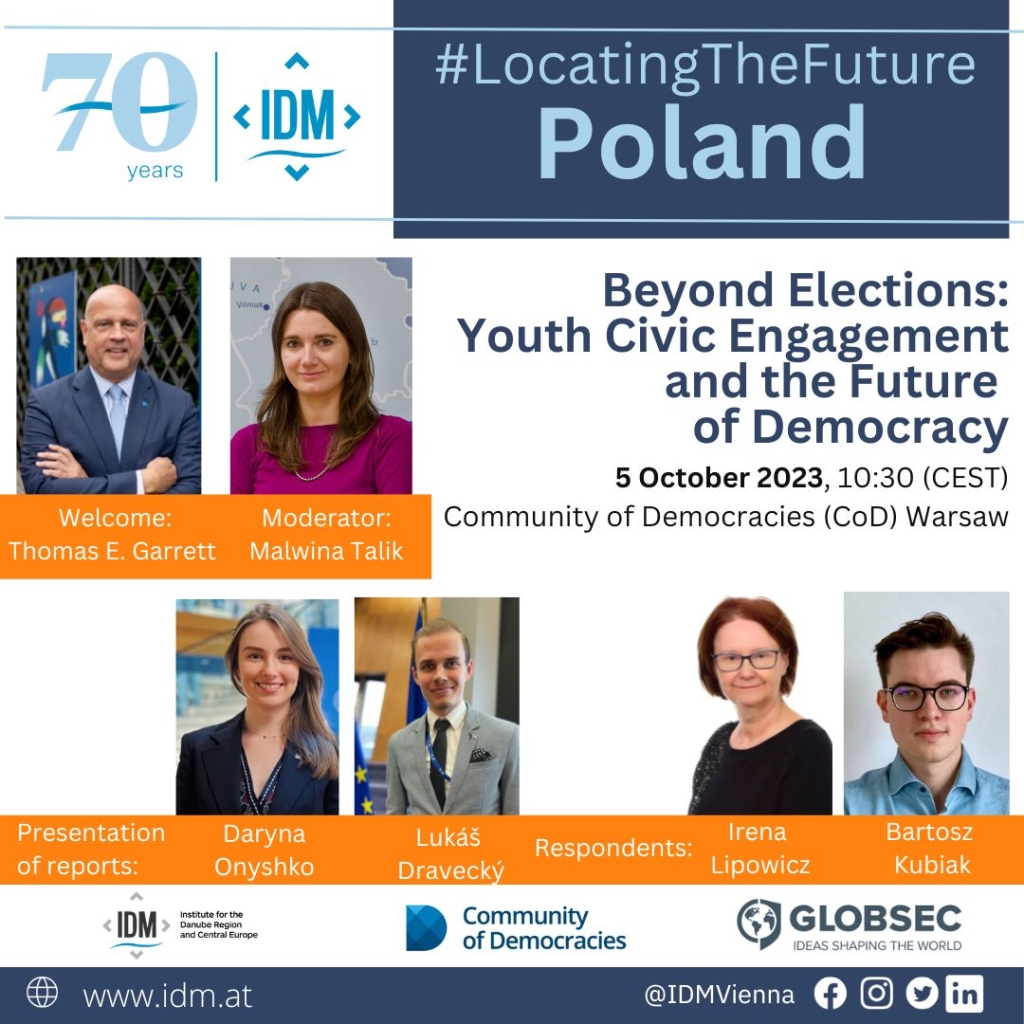
Beyond Elections: Youth Civic Engagement and the Future of Democracy
“70 Years of IDM – Locating the Future” series
Venue: Permanent Secretariat of the Community of Democracies (CoD), Aleje Ujazdowskie 41, Warsaw
Youth engagement in public life is vital to building stable and resilient democracies and inclusive societies. Yet young people across the globe often feel detached from political processes and have the impression that they are not considered important enough to be represented and their voice considered. Paradoxically, many young people see themselves as actively engaged citizens, though they stress that voting in elections is the main channel through which they practice this activism.
- What are the perceptions of young people with respect to democracy, democratic forms of participation, and citizen activism in the EU and beyond?
- What tools do the governments have to engage more impactfully and consistently young people?
- What can the international community do to advance impactful channels for citizens’ participation and activism?
This event was organised within the framework of „70 Years IDM – Locating the Future”, an event series organised in the IDM’s target countries on the occasion of its 70th anniversary.
Programme
10.30
Welcome coffee
11.00
Welcome
CoD Secretary General Thomas E. Garrett
70YearsIDM: The Institute and its Mission in Central and Eastern Europe and the Danube Region,
Malwina Talik, research associate, IDM
Presentation of reports
CoD report: Youth Recommendations to Increase Engagement in Democracy
Daryna Onyshko, CoD youth network coordinator
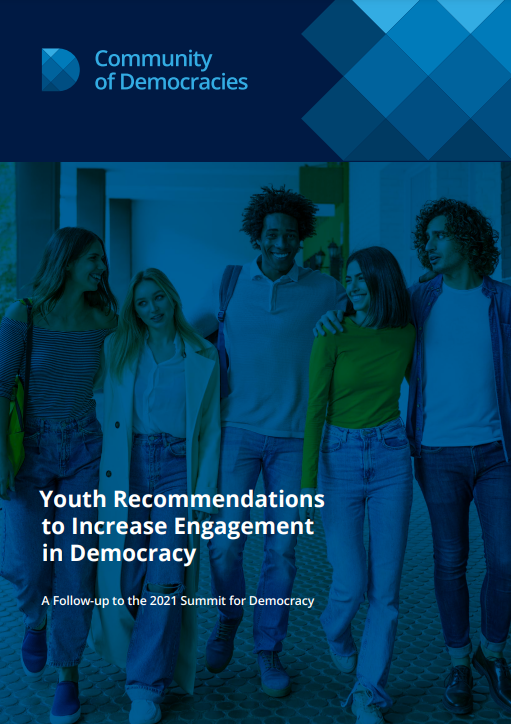
GLOBSEC/IDM (EUact2 project): “Young Minds, democratic horizons. Paving the Way for the EU’s Promising Future. Attitudes of Young People from Austria, Greece, Ireland and Slovakia”
Lukáš Dravecký, project coordinator, GLOBSEC
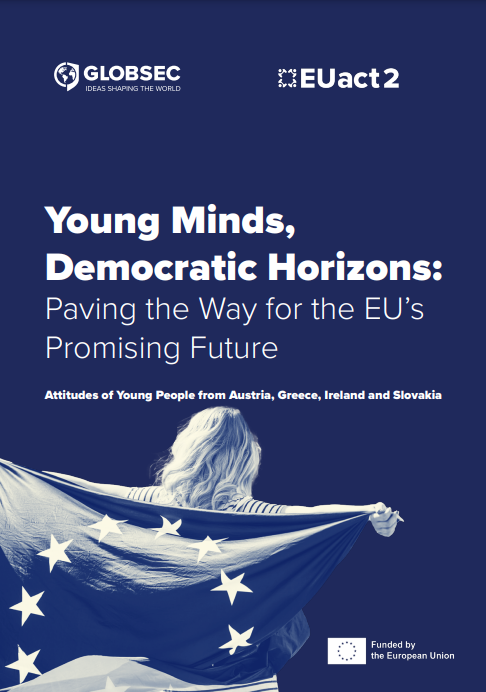
Comments/response
Prof. Irena Lipowicz, former Polish Ombudsman for Citizen Rights
Bartosz Kubiak, CoD YouthLead, Poland
Q&A
Conclusions & closing remarks
Moderation: Malwina Talik, IDM

